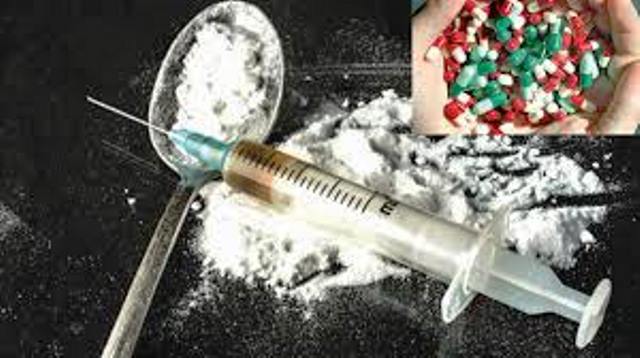Essay on How To Stop Drug Abuse in Nigeria
The menace of drugs can be fought. Education is the first battle. Children need to be told at home and in school about drugs. People need to be aware of the effects so that they can avoid this problem. Families and counselors need to talk to children and people at risk.

Parents need to look at their children and help them to get jobs that are needed to give people a role in society. Although the problem of drugs may seem impossible to eliminate, there are concrete steps that can be taken to weaken the hold of drugs on society. The danger from drugs is too great to ignore.
Drug and alcohol abuse are pervasive problems. Many suffer in silence, with the isolation enabling the addiction to grow worse over time. While recovery can seem impossible, there is hope for healing. The road is long, and there will be many obstacles along the way, but with courage, patience and persistence, it is possible to learn a healthier lifestyle and habits.
Admitting you have a problem with drug and alcohol abuse is a sign of tremendous courage and strength, and the beginning of the solution. Here are 5 sure ways to stop drug abuse.
1. Realize you have a problem with drug or alcohol abuse
This is a tremendous and courageous first step, as awareness is the catalyst for transformation; denial only enables addiction to tester. Getting sober also is an important part of the beginning of recovery. See your primary care doctor to get referred to an addiction medicine specialist if you experience withdrawal symptoms from becoming sober.
2. Seek help
Reach out to trusted family and friends. Bear out your mind and let them know the precarious circumstance in which you are so that they can reach out and suggest way out for you.
3. Choose a treatment program suited to your needs
Look for a professional in the area of drug abuser/addict treatment in your area, especially those that have good track records of treating addicts. Maintain recovery by staying involved in a support group and starting or maintaining healthy lifestyle practices such as exercisin a regularly, eating well and sleeping enough.
4. Develop healthy coping skills by learning emotional awareness and stress management through a course recommended by the professional that is treating you.
Identify triggers (people, places or things that cause you to abuse drugs or alcohol), and practice how you will successfully handle drugs or alcohol in social settings. You should not only identify the triggers, but do away from persons, places or events and occasions that reminds you of drug taking habits.
5. Have patience with yourself
Realize that recovery is a long-term process, which can involve relapse. If this occurs, do not beat yourself up. Do not give up on yourself. Instead, admit to yourself or someone you trust that you have made a mistake, and then redouble your commitment to healing: Have faith, be determined, and persevere. You will see results.
Finally, we must note parents has tremendous contribution to make in preventing and controlling young ones and teenagers generally from taking to drugs. The followings are certain suggested steps the family or parents can take:
- Lay down rules and consequences: Your teen should understand that using drugs comes with specific consequences. But don’t make hollow threats or set rules that you cannot enforce. Make sure your spouse agrees with the rules and is prepared to enforce them.
- Monitor your teen’s activity: Know where your teen goes and who he or she hangs out with. It’s also important to routinely check potential hiding places for drugs-in backpacks, between books on a shelf, in DVD cases or make-up cases, for example. Explain to your teen that this lack of privacy is a consequence of him or her having been caught using drugs.
- Encourage other interests and social activities: Expose your teen to healthy hobbies and activities, such as team sports, Scouts, and after-school clubs.
- Talk to your child about underlying issues: Drug use can be the result of other problems. Is your child having trouble fitting in? Has there been a recent major change, like a move or divorce, which is causing stress?
- Get Help: Teenagers often rebel against their parents but if they hear the same information from a different authority figure, they may be more inclined to listen. Try a sports coach, family doctor, therapist, or drug counselor.